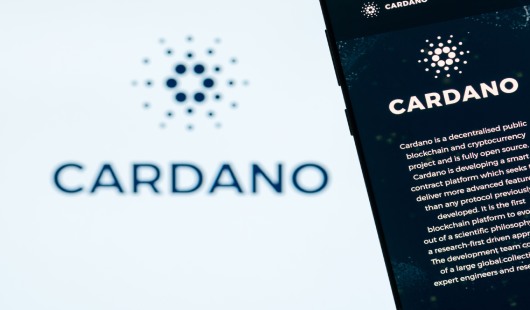-
Cryptocurrencies have brought about a paradigm shift in how we perceive and transact value in the digital age. While Bitcoin laid the foundation for decentralized digital currency, subsequent blockchain projects have sought to improve its limitations and innovate in various areas. One such project that has captured the attention of the blockchain community is Cardano for its groundbreaking proof-of-stake (PoS) protocol, Ouroboros. The introduction of Cardano blockchain development services has sparked a new wave of financial innovation and decentralized systems.
Charles Hoskinson, one of the co-founders of Ethereum, founded Cardano in 2017, leading this movement. Unlike many other blockchain projects that hastily launch untested concepts, Cardano took a methodical and research-driven approach, emphasizing scientific principles and peer-reviewed research to build a robust and scalable platform.
The Problems with Traditional Proof of Stake
Traditional proof-of-stake protocols have faced criticism and challenges over the years. One of the fundamental issues is the "nothing at stake" problem, where validators have no disincentive for supporting multiple competing chains. This lack of penalty can lead to network instability and compromise security. Additionally, scalability has been a persistent challenge for many PoS-based cryptocurrencies, limiting their ability to handle large transaction volumes.
You may also like | The Boons of Building on Cardano Blockchain
The Birth of Cardano
Cardano emerged as a response to these challenges, aiming to create a secure, scalable, and sustainable blockchain platform. The principles of academic rigor, formal methods, and peer-reviewed research guide the project's development. Cardano's team includes cryptography, distributed systems, and computer science experts, ensuring a comprehensive approach to building a next-generation blockchain.
What is Ouroboros?
At the heart of Cardano's innovation is its PoS protocol, Ouroboros. Named after the ancient symbol of a serpent eating its tail, which symbolizes self-sustainability and continuity, Ouroboros represents a novel approach to consensus mechanisms in blockchain networks.
Also, Check | A Definitive Guide to Understanding Cardano Smart Contracts
A Brief Technical Explanation of Ouroboros
Ouroboros operates on the concept of time epochs, which are specific periods during which transactions are processed and validated. Validators, also known as stakeholders, are selected based on their stake in the network—those with higher stakes have a greater chance of being chosen as slot leaders. Slot leaders are responsible for creating new blocks and maintaining the integrity of the blockchain.
Ouroboros employs a layered architecture, dividing the network into stake pools and delegation mechanisms. This design promotes decentralization by allowing stakeholders to delegate their voting power to pools, which then participate in block creation. The protocol also incorporates innovative cryptographic techniques to ensure security and prevent attacks such as the "nothing at stake" problem and long-range attacks.
Also, Check | Layer 1 Blockchain: The Foundation of Decentralized Networks
Advantages of Ouroboros over Traditional Proof of Stake
Ouroboros offers several key advantages over traditional PoS protocols:
Enhanced Security
Through its cryptographic methods and incentive structures, Ouroboros mitigates the risks associated with PoS, such as the "nothing at stake" problem and long-range attacks. It also strengthens the network's overall security.
Scalability
By dividing time into epochs and utilizing a layered architecture, Ouroboros improves scalability without sacrificing decentralization or security. It enables Cardano to handle a growing number of transactions efficiently.
Sustainability
Ouroboros is designed to be energy-efficient, in contrast to proof-of-work (PoW) protocols like Bitcoin, which consume significant computational resources. This sustainability aspect is crucial in today's environmentally conscious landscape.
You may also like | Exploring the Emerging Use Cases of Cosmos Blockchain
The Promising Future of Ouroboros and Cardano
As Cardano continues to evolve and gain traction in the blockchain space, Ouroboros plays a central role in its success. The protocol's ongoing research and development efforts and Cardano's focus on formal verification and governance position it as a leading contender among blockchain platforms.
Cardano's vision extends beyond financial transactions, with applications in supply chain management, healthcare, and identity verification. Ouroboros' scalability and security features make it well-suited for a wide range of use cases, paving the way for real-world adoption and innovation.
Conclusion
In conclusion, Cardano's Ouroboros represents a tailored and innovative approach to proof-of-stake consensus. By addressing the limitations of traditional PoS protocols and introducing advanced features such as epoch-based validation and stake delegation, Ouroboros has positioned Cardano as a frontrunner in the blockchain industry.
As the demand for scalable, secure, and sustainable blockchain solutions grows, Ouroboros' advantages over traditional PoS mechanisms make it a compelling choice for developers, businesses, and users alike.
With ongoing advancements and a commitment to scientific rigor, Cardano and Ouroboros will shape the future of decentralized technologies and drive meaningful change across various sectors.
Interested in blockchain development? Contact our team of skilled blockchain developers at Oodles Blockchain to explore innovative use cases offered by Cardano's Ouroboros.

Our Offices
INDIA
Emaar Digital Greens, Sector 61,
Gurugram, Haryana
122011.
Welldone Tech Park,
Sector 48, Sohna road,
Gurugram, Haryana
122018.

















